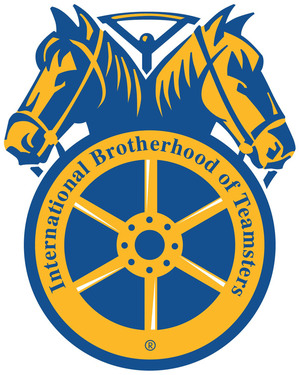COPENHAGEN, Denmark and FRANKFURT, Germany and SEATTLE and STOCKHOLM and VIENNA and WASHINGTON, Dec. 15, 2016 /PRNewswire-USNewswire/ -- A network of European and North American unions, labor confederations, and worker organizations issued a call yesterday for transnational cooperation between workers, worker organizations, platform clients, platform operators, and regulators to ensure fair working conditions and worker participation in governance in the growing world of digital labor platforms such as Clickworker, Amazon Mechanical Turk, Jovoto, and Uber.
The growth of "platform-based work" poses both opportunities and risks for workers and for society at large, and is a chance for a "co-operative turn" in the relationship between worker organizations and management, according to the document, titled the "Frankfurt Paper on Platform-Based Work."
The participating organizations made the following joint statement: "In the context of globalization, digitalization, 'flexibilization' of work, growing income inequality within countries, and growing political polarization in Europe and the United States, fair, socially sustainable work and real worker participation in shaping working conditions are more important than ever. This is just as true on digital platforms as in industrial manufacturing and office work. If our democratic societies are to stay democratic, workers must have democratic influence over the governance of work. Digitalization does not need to contribute to rising income inequality and polarized politics. Businesses, workers, and regulators have a common interest in ensuring that the benefits of digitalization are shared broadly and equitably — and worker participation in the governance of work is a historically proven mechanism for doing so. Against the risk of 'digital feudalism,' platform operators, workers, worker organizations, clients, researchers, and regulators must work together to bring democracy to these new digital workplaces."
The paper calls on the diverse stakeholders to "platform-based work" to work together to:
- ensure that platform businesses comply with relevant national laws and international conventions, rather than using technology to work around them;
- clarify the employment status of platform-based workers;
- ensure that platform-based workers who are not truly self-employed have the right to organize and negotiate collective agreements with platform operators and/or clients;
- seek to ensure that all platform-based workers, regardless of employment status, receive at least minimum wage in their jurisdiction (or, in jurisdictions with no minimum wage, the wage specified in the relevant collective agreement) for their work;
- ensure that platform-based workers have access to social protection — such as unemployment insurance, disability insurance, health insurance, pension, and compensation in the event of work-related illness or injury — regardless of employment status;
- develop transparent, accountable methods for resolving disputes between clients and workers — and, as needed, between workers — in cases, for example, of client nonpayment or unclear allocation of intellectual property rights; and
- increase transparency in the world of platform-based work.
"The organizations who contributed to this paper are all already engaged in making fair working conditions and worker participation a reality in digital labor platforms," said Christiane Benner, Vice President of the German Metalworkers' Union (IG Metall), which convened the network. "We are just at the beginning of this work, but it has already taken on a diversity of forms, including innovative organizing, technology development, new services, policymaking, public awareness campaigns, research, and dialogue with platform operators."
John Scearcy, Secretary-Treasurer of Teamsters Local 117 in Seattle, Washington, referenced public policy changes that could help stabilize platform-based work: "In Seattle, we passed an innovative law to give drivers in our region's for-hire industry greater control over their work through the right to collectively bargain over issues like pay and working conditions. Giving workers a voice is a critical step toward self-determination, humane conditions, and a living wage."
Referring to a model of worker participation common in Europe, called "co-determination", Austrian Chamber of Labour President Rudolf Kaske said, "Platform-based work presents an opportunity to modernize co-determination law and practices — to develop 'Co-Determination 4.0.'" The notation '4.0' refers to German-speaking conversations about 'Work 4.0,' the ongoing transformation wrought by the digitalization of both office work and manufacturing.
Martin Linder, President of the Swedish white-collar union Unionen, said, "In Scandinavia we have a long tradition of close cooperation between unions, company management, and regulators in pursuit of shared social goals. The Scandinavian experience — and ongoing work on this topic in Sweden — can be a resource for multi-stakeholder efforts to ensure that platform-based work is socially sustainable. Specifically, we have developed a model that we believe will allow us to maintain strong labor standards while allowing platform operating companies to be innovative and flexible."
Contact:
Dawn Gearhart, (206) 794-6678
[email protected]
SOURCE Teamsters Local 117
WANT YOUR COMPANY'S NEWS FEATURED ON PRNEWSWIRE.COM?
Newsrooms &
Influencers
Digital Media
Outlets
Journalists
Opted In





Share this article